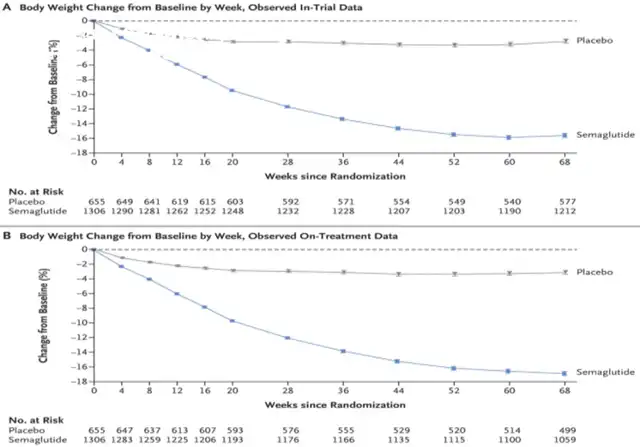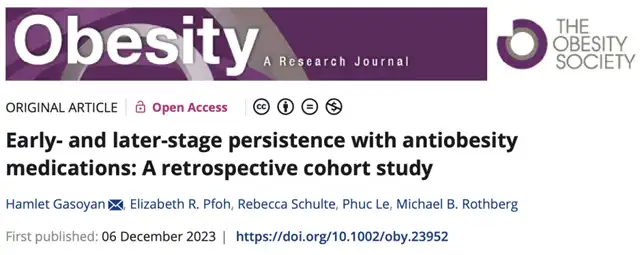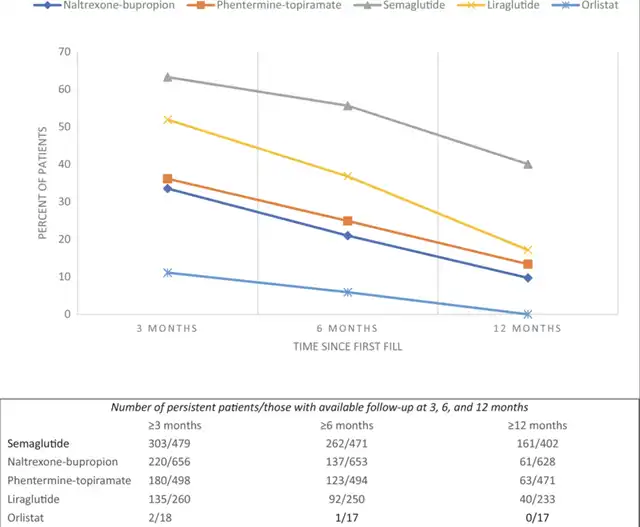Semaglutide: A Weight Loss Wonder Drug or a Half-Baked Solution?
- Normal Liver Cells Found to Promote Cancer Metastasis to the Liver
- Nearly 80% Complete Remission: Breakthrough in ADC Anti-Tumor Treatment
- Vaccination Against Common Diseases May Prevent Dementia!
- New Alzheimer’s Disease (AD) Diagnosis and Staging Criteria
- Breakthrough in Alzheimer’s Disease: New Nasal Spray Halts Cognitive Decline by Targeting Toxic Protein
- Can the Tap Water at the Paris Olympics be Drunk Directly?
Semaglutide: A Weight Loss Wonder Drug or a Half-Baked Solution?
- Should China be held legally responsible for the US’s $18 trillion COVID losses?
- CT Radiation Exposure Linked to Blood Cancer in Children and Adolescents
- FDA has mandated a top-level black box warning for all marketed CAR-T therapies
- Can people with high blood pressure eat peanuts?
- What is the difference between dopamine and dobutamine?
- How long can the patient live after heart stent surgery?
Semaglutide: A Weight Loss Wonder Drug or a Half-Baked Solution?
Less Than 50% Adherence After One Year of Use – What Happens When You Stop? The Price of the Dream: High Costs and Supply Shortages Plague Semaglutide
Semaglutide, hailed as a miraculous weight loss drug, has become the beacon of hope for many seeking an effortless solution to shed pounds. However, recent findings reveal that less than 50% of users adhere to a year-long regimen. What happens when the drug is discontinued?
The allure of Semaglutide lies in its claim of shedding 20 kilograms with minimal effort – a message that has captured the attention of weight-conscious individuals worldwide, causing shortages in several countries.
Initially approved for blood sugar reduction, Semaglutide’s weight loss effects are now in the spotlight. Touted as the “internet-famous weight loss miracle,” it gained widespread attention when Tesla CEO Elon Musk shared his dramatic weight loss journey on social media, crediting fasting and Wegovy (active ingredient: Semaglutide).
Semaglutide, a novel long-acting glucagon-like peptide-1 (GLP-1) analog, not only effectively suppresses glucagon release but also indirectly lowers blood sugar. With a half-life of approximately one week, its once-a-week dosing schedule replaced previous-generation diabetes medications, hitting the Chinese market in April 2021.
Semaglutide’s weight loss mechanism isn’t overly complex – it enhances insulin sensitivity by mimicking the effects of GLP-1, leading to increased post-meal satiety and reduced hunger, calorie intake, and weight.
In a groundbreaking global clinical trial published in NEJM in 2021, a weekly 2.4mg dose of Semaglutide resulted in a remarkable 15.3kg weight loss over 68 weeks. JAMA’s research further compared Semaglutide with the common weight loss drug Liraglutide, showing a 15.8% average weight reduction for Semaglutide versus Liraglutide’s 6.4%.
 Changes in weight between the experimental group and the control group (Source: NEJM)
Changes in weight between the experimental group and the control group (Source: NEJM)
How durable are people on anti-obesity drugs?
But in addition to efficacy, a more concerning question is: How durable are anti-obesity drugs (AOMs) similar to semaglutide? Why don’t people stick with weight loss pills?
To answer this question, researchers from the Cleveland Clinic examined the persistence of multiple AOMs and the reasons for failure to adhere to medication.
The results showed that with the extension of follow-up time, the proportion of patients persisting in taking AOMs decreased significantly, from 44% at 3 months to 19% at 1 year.
Why do more than half of people give up taking this drug? This is the question this study attempts to answer.

https://doi.org/10.1002/oby.23952
The researchers screened electronic health records from 2015 to 2023 at large health systems in Ohio and Florida to identify study subjects who met the inclusion criteria – ultimately identifying 1,911 patients with a body mass index (BMI) ≥30kg/m^ 2, and the AOM is used for the first time within this time period.
Among them, AOMs are drugs and dosage forms approved by the FDA for chronic weight management, including phentermine-topiramate, naltrexone-bupropion, orlistat, semaglutide injection 2.4 mg, and Laglutide injection 3 mg.
Statistics for the entire cohort showed that 34% received naltrexone-bupropion, 26% received phentermine-topiramate, 25% received semaglutide, 14% received liraglutide, and 0.9% received oral Rlistat.
The researchers observed during the follow-up period that at 3 months, 44% of the subjects in the entire cohort were still persisting in using AOM drugs; at 6 months, this proportion dropped to 33%; and after 1 year, only 19% of patients are still taking AOM.
Specifically, continuation rates vary widely between drugs. For example, at 3 months and 6 months, semaglutide had the highest persistence rates of 63% and 56%, respectively, followed by liraglutide at 52% and 37%.
However, after one year of taking the drug, the persistence rate of naltrexone-bupropion was only 10%, and even semaglutide, which had the highest persistence rate, dropped by more than half to 40%.

Percentage of medication adherence for different drugs
So why do people stop using AOMs?
Firstly, the high cost of AOMs, ranging from $200 (Fen-phen) to $1300 (3.0mg Liraglutide and 2.4mg Semaglutide) per month, makes them a non-trivial financial commitment. Limited insurance coverage, especially for the expensive new generation GLP-1 receptor agonists, further impedes access, contributing to AOM discontinuation.
Secondly, concerns over adverse effects associated with GLP-1 drugs like Semaglutide are growing. Studies suggest an increased risk of gastrointestinal issues, including pancreatitis, gastric paresis, and intestinal obstruction, compared to other weight loss drugs like Phentermine-Topiramate. FDA reports the most common gastrointestinal side effects as nausea, vomiting, diarrhea, abdominal pain, and decreased appetite.
Thirdly, Semaglutide isn’t a foolproof solution; it requires dietary and lifestyle management. Clinical trials indicate that over 50% of lost weight rebounds within a year of stopping Semaglutide, emphasizing the importance of post-treatment weight maintenance.
In conclusion, the dream of effortlessly losing weight with Semaglutide might be elusive, as challenges in affordability, supply, and potential side effects contribute to a significant number of users discontinuing the drug. Weight maintenance post-treatment emerges as a critical factor in the effectiveness of anti-obesity medications.
Semaglutide: A Weight Loss Wonder Drug or a Half-Baked Solution?
References:
[1] Gasoyan H, Pfoh ER, Schulte R, Le P, Rothberg MB. Early- and later-stage persistence with antiobesity medications: A retrospective cohort study. Obesity (Silver Spring). 2023 Dec 6. doi: 10.1002/oby. 23952. Epub ahead of print. PMID: 38053443.
[2] Khoo TK, Lin J. Once-Weekly Semaglutide in Adults with Overweight or Obesity. N Engl J Med. 2021 Jul 1;385(1):e4.
[3] Rubino DM, et al. Effect of Weekly Subcutaneous Semaglutide vs Daily Liraglutide on Body Weight in Adults With Overweight or Obesity Without Diabetes: The STEP 8 Randomized Clinical Trial. JAMA. 2022 Jan 11;327(2):138-150 .
[4] Sodhi M, Rezaeianzadeh R, Kezouh A, Etminan M. Risk of Gastrointestinal Adverse Events Associated With Glucagon-Like Peptide-1 Receptor Agonists for Weight Loss. JAMA. Published online October 05, 2023. doi:10.1001/jama.2023.19574
(source:internetSvx6dXBlALCroPSHloDuBQ, reference only)
Disclaimer of medicaltrend.org
Important Note: The information provided is for informational purposes only and should not be considered as medical advice.



